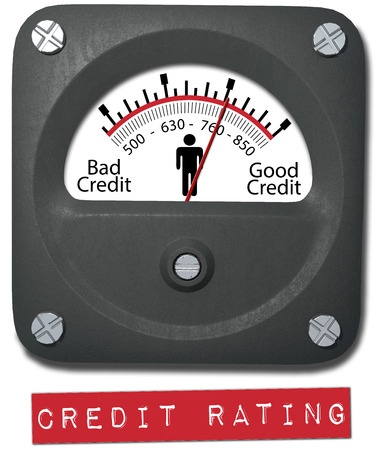 Though most of us have basic knowledge about credit, major gaps still exist. According to the nonprofit organization American Consumer Credit Counseling (ACCC), more than half of Americans are unaware that credit scores measure the risk of not repaying a loan on time, rather than their ability to pay based on their annual salary.
Though most of us have basic knowledge about credit, major gaps still exist. According to the nonprofit organization American Consumer Credit Counseling (ACCC), more than half of Americans are unaware that credit scores measure the risk of not repaying a loan on time, rather than their ability to pay based on their annual salary.
“Credit has a major impact on so many aspects of an individual’s life, from the ability to rent a home or apartment to buying a car or securing a mortgage,” says Steve Trumble, president and CEO of ACCC. “Despite its importance, many Americans not only have trouble managing their credit, but they don’t fully grasp how it works and what it means – particularly when it comes to understanding their credit scores.”
The ACCC shares five things to know about credit:
1. A good credit score secures financial wellness. Credit is more than just a plastic card you use to buy things—it is your financial trustworthiness. Good credit means that your history of payments, employment and salary make you a good candidate for a loan, and creditors—those who lend money or services—will be more willing to work with you.
2. All credit scores are not the same. There are three major credit reporting agencies (Experian, Equifax, TransUnion), and they each have their own model for calculating your score. They also may not all be using the same information. Each score matters, and different lenders may be using different scores to evaluate you.
3. Bad credit scores are fixable. A bad credit history can haunt you for a long time—seven years or more. Make sure you correct any errors on your report. Asking for help from your creditors can go a long way in terms of fixing bad credit. If you have a poor credit score, take the necessary steps to start fixing it by paying down debt where possible and making payments on time.
4. Make the right choice. Consider fees, limits, interest rates, and benefits, which can vary substantially among credit card issuers, when opening a new card. Some credit cards that look like a great deal at first glance may lose their appeal once you read the terms and conditions of use and calculate how the fees could affect your available credit.
5. Discipline goes a long way. Try to pay your bills on time and in full as much as possible. This will help you avoid late fees, and build a positive credit history.
Source: ACCC







